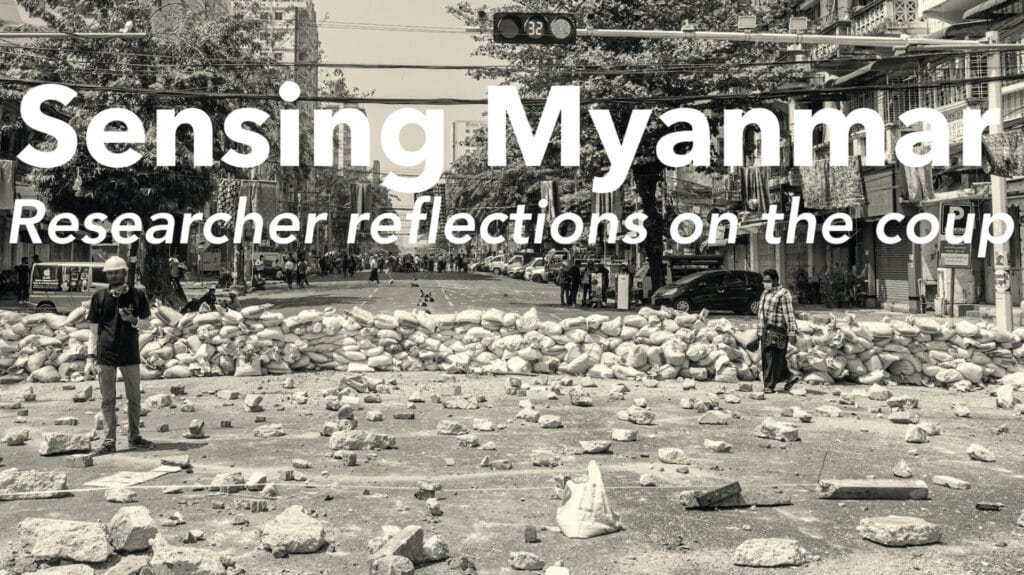Sensing Myanmar – researcher reflections on the coup
28-05-21

An acute crisis insists on a response, especially when the crisis is an unfolding feature of a landscape that a research project is designed to address, write Andrew M. Jefferson, Tomas Max Martin, Hannah Russell, and Ergun Cakal. They work on a Danida-supported research project based at DIGNITY – the Danish Institute Against Torture, and have just launched the essay series Sensing Myanmar that reflects on the recent military coup.
When the military coup took place in Myanmar 1 February 2021, it sent shockwaves throughout the world and affected many who do research in and about Myanmar in a deep, visceral way. Among them the researchers behind the project Legacies of Detention in Myanmar.
Since the takeover, the DIGNITY based researchers have followed the developments in Myanmar closely. First hand through their contacts and research partners in Myanmar, as well as via UN outlets, news and social media platforms, webinars and other online meetings. They have also published in the Danish press, on social media and participated in demonstrations expressing solidarity and calling out the military regime.
Seeking to understand and make sense of violence is at the core of the research project “Legacies of Detention in Myanmar”. Drawing from this, the essay series Sensing Myanmar is an attempt to put scholarly knowledge into action and provide context to what led to the coup and what is now taking place in Myanmar.
The series is also a response to the call of Matt Venker, Nicole, and Ma Ei Ei’s who ask What role can public scholarship play after the coup? and the responsibility they feel they have to provide context and research-based nuance.
An acute crisis insists on a response, especially when the crisis is an unfolding feature of a landscape that a research project is designed to address. We have few illusions about the difference writing can make in the current crisis here and now. But the compulsion to write is no less on that account, write the researchers in the introduction to the series.
Sensing Myanmar focuses on the following themes:
- Prisons, arrest and detention
- Law and legitimacy
- State-in-the-making
- Struggles of everyday life
The DIGNITY-based team and other researchers sharing a similar desire to illuminate the coup and its aftermath will provide short, accessible pieces of around 1000-1500 words with a scholarly signature.
The series will be online, curated and updated over a period of three to six months through May to October 2021 depending on interest and uptake. They also call for other researchers essay reflections via Andrew M Jefferson, email: amj@dignity.dk.
Legacies of Detention in Myanmar is supported by the Ministry of Foreign Affairs of Denmark and administered by Danida Fellowship Centre. Cover photo: Benjamin Small
Go back to our stories
